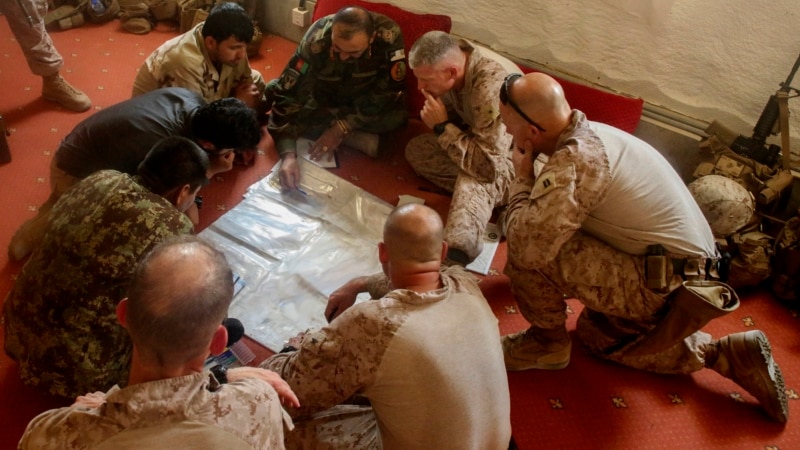'No Easy Answers' on Afghan Policy

The Trump administration's review of the U.S. policy in Afghanistan is taking "longer than originally announced and intended," the former U.S. envoy on Afghanistan and Pakistan told VOA, although that could be due to the complexity of the issue.
"There are no easy answers, there are no easy solutions. After 16 years, a lot of different approaches have been tried or at least considered," said Laurel Miller in an interview with the VOA Afghan service this week. President Donald Trump and his security team may be finding that they need more time to establish a new way forward, she said.
Miller, a Rand corporation foreign policy expert, served as the special representative for Afghanistan and Pakistan, or SRAP, for nine months, until June 23 of this year.
The administration has released few details about its policy review, but several options have been floated in the news media. Among those options: a new influx of U.S. troops, turning much of the fighting and work over to private contractors, looking at ways to bolster Afghanistan by expanding its precious mineral mining industry, and sharply drawing down the U.S. and NATO presence.
The range and contradictions of those ideas isn't surprising to Miller.
"It's important to consider all legitimate options for the path ahead in Afghanistan," she said.
Caution over contractors
But she cautioned that "there aren't really a lot of new ideas" on how to move forward.
The idea of replacing military troops and government employees with a team of private contractors wouldn't be practical, Miller said. For one thing, she said, it's unlikely that the Kabul government would accept the idea.
Additionally, there are legal issues regarding what contractors can and can't do for the U.S. government, while hiring companies to do the government's work often isn't cost effective. But her key concern is that bringing in contractors wouldn't necessarily bring new success.
"You don't achieve something different just by hiring different people," Miller said.
Sharply reducing the foreign military presence could be effective if done gradually, with new steps to support stability for the Afghan government and economy, she said. But an abrupt drawdown without new support for the Afghans would be "highly destabilizing" and "send a signal to countries in the region of U.S. disengagement," so those countries might take actions that worsen the situation.
An intermediate strategy, such as relying primarily on drone strikes and Special Forces operations, could be effective, Miller said, if the U.S. determines what its objectives are and plans such a strategy to meet them.
Review is essential
The U.S. never managed to bring the Afghan Taliban to the negotiating table, largely because the militants would hold peace talks only with Washington, and not the Kabul government, Miller said. At this point, she said, it appears Trump is still considering whether peace talks would be one of its policy goals.
Miller, who was on loan to the State Department for four years, was named acting SRAP in November 2016. She left her position as the loan agreement with Rand expired, and her departure left in question the fate of the SRAP office. The acting assistant secretary of state for South and Central Asia is handling the SRAP portfolio for now.
The SRAP office may be folded into the South and Central Asia bureau, a move that Miller says makes sense in organizational terms.
"I agreed and had recommended that consolidation should move forward. But even so, the planning surrounding that shouldn't be seen as irrelevant as a policy signal," she said.
A detailed review of the entire U.S. policy for Afghanistan and Pakistan is essential for any new administration, she said.
"I would also say it's important for a new administration to do that because in places of the world where it is sending its service personnel into harm's way, where the United States is spending an extraordinary amount of taxpayer dollars, there needs to be not just a bureaucratic and policy commitment at the technical level to that endeavor, there needs to be a political commitment," Miller said.
Getting that political commitment means having the support of the White House, Miller said.

0 Response to "'No Easy Answers' on Afghan Policy"
Posting Komentar